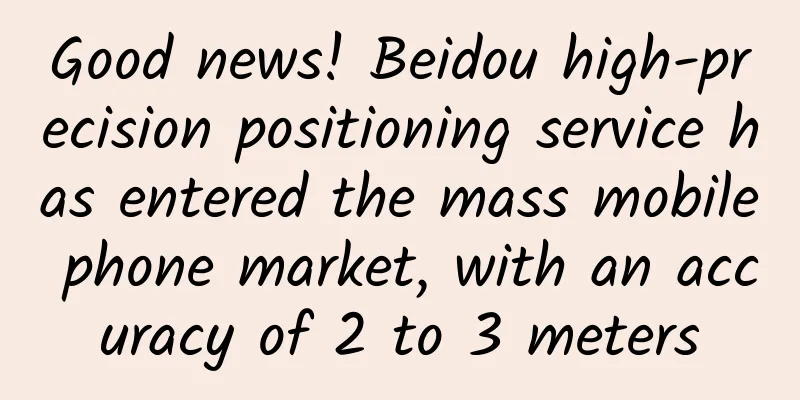VR will explode this year, but you may not have anything to do with it

|
It's because your computer hardware configuration is too low to meet the requirements of VR, and the same is true for most PCs on the market. This is actually an opportunity for semiconductor manufacturers such as Intel and Nvidia. In the past 2015 (we need to constantly reinforce the fact that it is already 2016), we have seen VR give birth to too many incredible stories or legends. Yes, I am talking about the stock that has been engaged in video playback tools for more than ten years with mediocre performance, but has welcomed 39 daily limit ups thanks to the VR business that the startup team fled before the listing. And this is just one of the reasons. What is even more exciting is that, stimulated by the sale of industry leader Oculus to Facebook for US$2 billion, more and more entrepreneurs have begun to turn their attention to this field and received real money bets from investors and speculators in 2015. The most recent one was on December 25, 2015, when Dapeng VR announced that it had received a $30 million Series B financing led by Xunlei and followed by Kaiying Network. In mid-November, Noitom announced that it had completed a $20 million Series B financing led by Alpha Animation and Culture Co., Ltd., and followed by Haitong Capital and Legend Capital. Fireworks, which held its first product launch a few days ago, received a round of financing in September. AntVision Technology, which has been controversial, also announced that it had received investment from Sequoia Capital. Depth VR got on the bandwagon of Meizu. HTC also regained the sense of glory of being the center of attention because of its collaboration with Valve on the Vive virtual reality device, which has an unparalleled effect. In addition to the start-up teams and established game and mobile phone manufacturers mentioned above, a giant has recently joined the VR field, namely Tencent. According to information obtained by PingWest, Tencent will launch an all-in-one device like Oculus that needs to be connected to a PC, as well as a small helmet device that can be used with a mobile phone. The major obstacle to the commercialization of VR mentioned above is the hardware configuration of the all-in-one machine that Tencent and Oculus will launch. As for why it is not a virtual reality helmet with a lower threshold and a wider audience, the reason is that virtual reality technology is still in its early stages, content is scarce, and there are still screen delays and distortions. The resulting dizziness will be magnified in the eyes of ordinary consumers, who have a lower tolerance and may push this technology to the forefront of public opinion if they are not careful. If you still remember, in 2014, when manufacturers including Sony were eager to try out consumer-grade virtual reality devices, Oculus warned all of them, risking the world's disapproval, that if the demonstration effect did not reach the level of Oculus devices, they should simply not release them. The reason for this was probably that they were afraid that this newly formed industry would be ruined by the manufacturers' over-hasty efforts. The stringent requirements for hardware configuration are also to ensure the smoothness of the experience. In May 2015, the Oculus team announced the minimum hardware standards for the consumer version of VR equipment to be released in Q1 2016, which verified this point:
Such demanding hardware standards are not without their drawbacks. At present, Nvidia is already secretly happy. According to its statistics, in 2016, only about 13 million PCs in the world met the above standards, accounting for less than 1% of the world's 1.43 billion PCs. This may allow PC manufacturers to taste some sweetness in the next few years. What's more, the momentum of VR explosion is getting stronger and stronger. At the upcoming CES 2016, more than 40 exhibitors will display VR equipment, and the highly acclaimed Vive helmet will also usher in a new version. However, the small upsurge of VR is still difficult to reverse the general trend of PC decline. |
<<: How to Develop the Next Generation of Highly Secure Apps
>>: As a developer, how do you think Apple should improve its developer tools?
Recommend
The cold wind is howling. Each plant has its own unique way to save its life!
In order to compete for limited sunlight and wate...
Stop thawing the meat in water, this practice is really not advisable!
Do you have a lot of frozen meat in your refriger...
India bans 59 Chinese apps; experts: limited impact
On June 30, India banned 59 Chinese apps for secu...
In 2021, the total shipments of mobile phones in the domestic market reached 351 million units, of which 5G mobile phones accounted for about 76%.
According to data released by the China Academy o...
Apple is still considering whether to completely rebuild Siri
Siri has been having problems since its release, ...
Social media has made advertising no longer a “one-time investment” thing!
Advertising is not as simple as finding a media o...
3 days, 0 budget, sales of 10,000 goods, all the activity methodology is here!
The article combines the author's actual expe...
Magnolia family illustrations, which ones do you see?
"The green branches are so strong that they ...
Is it self-deception or is it your brain deceiving you? The truth about lies
© Jan Buchczik Leviathan Press: In absolute terms...
In-depth analysis: Does the iPhone retain its value?
When comparing Apple and Android, many friends al...
Is information flow too expensive? Tell you how to create the effect of 5 million with 500,000!
With the expansion of social networks , the incre...
Is the bone paste in starch sausage really terrible? Can we still eat starch sausage?
During the 315 period this year, starch sausages ...
China Hernia Day丨Don’t ignore the small matter of “hernia”! Talk about “hernia”
March 7th of every year is "China Hernia Day...
Tian Maoping: 10 lectures on Chinese medicine meridian theory and EFT emotional release technique
The emotion release technology that is popular in...









